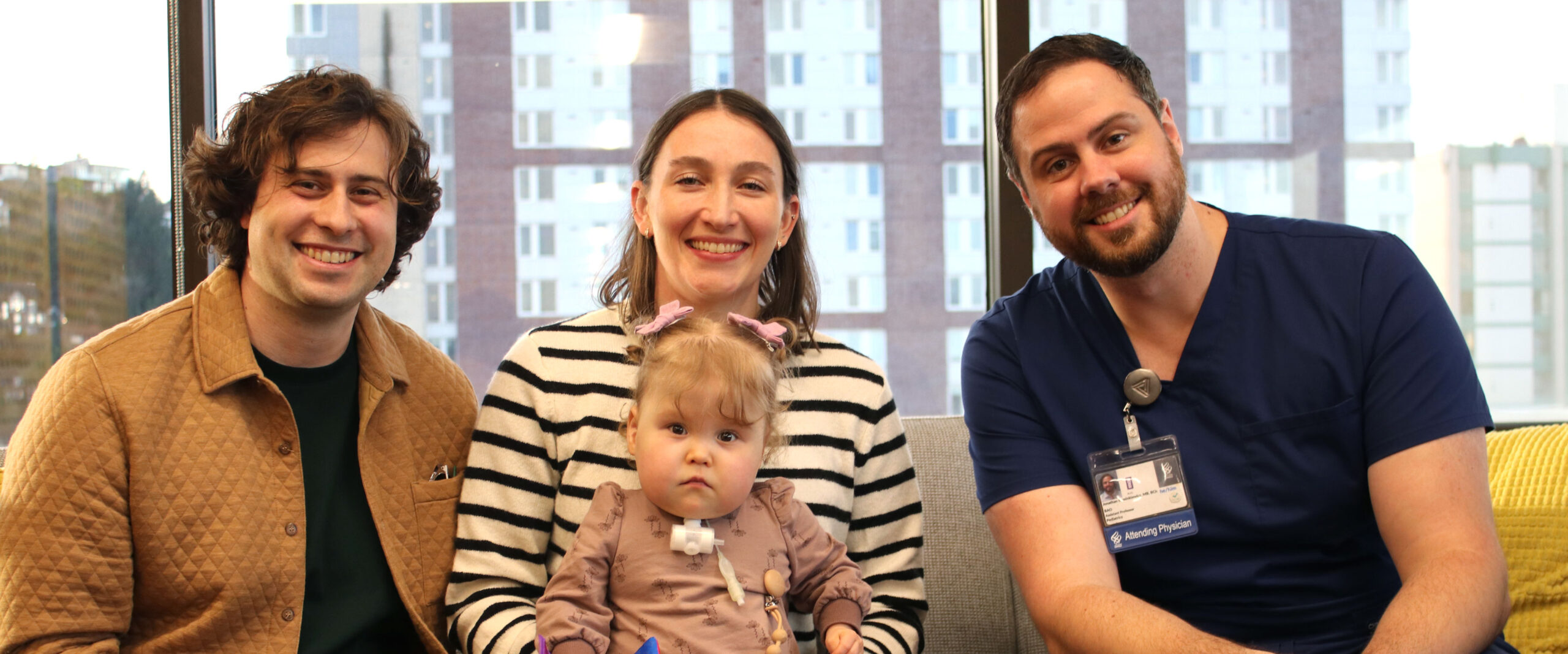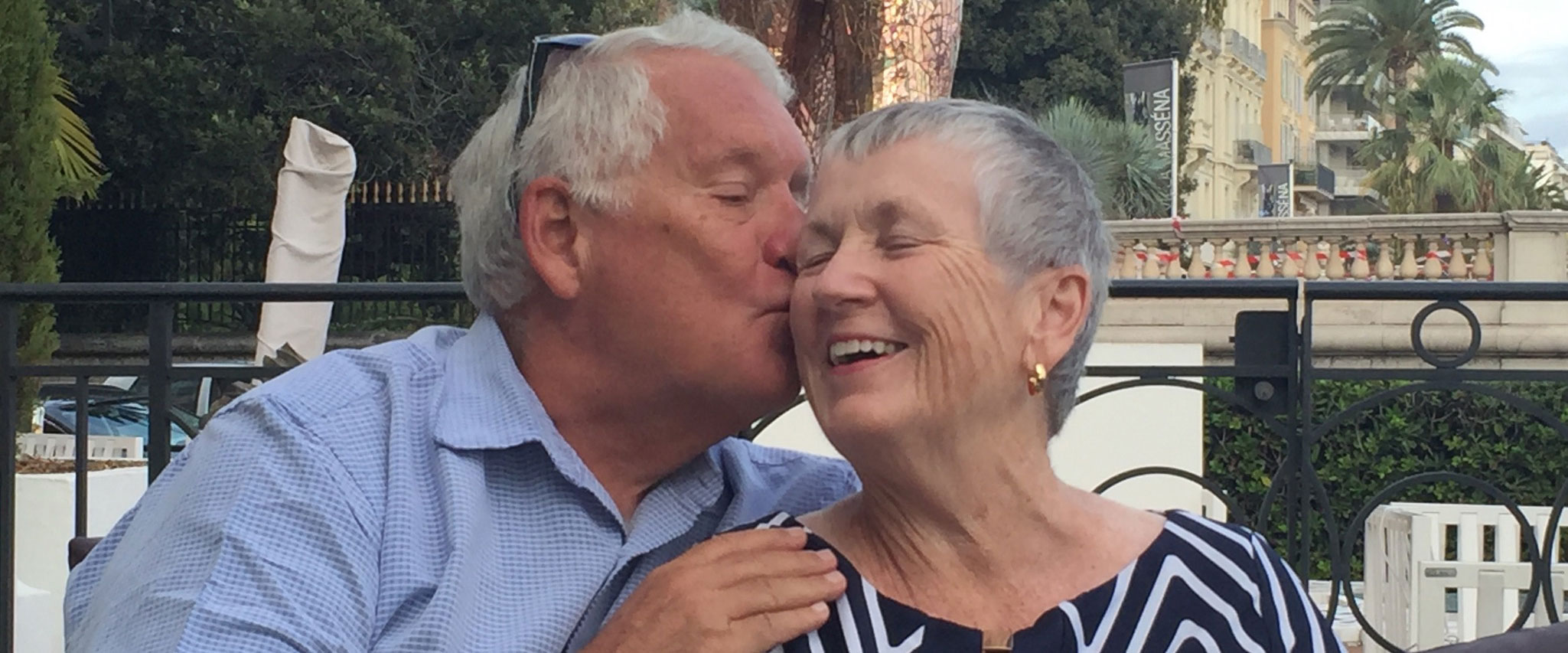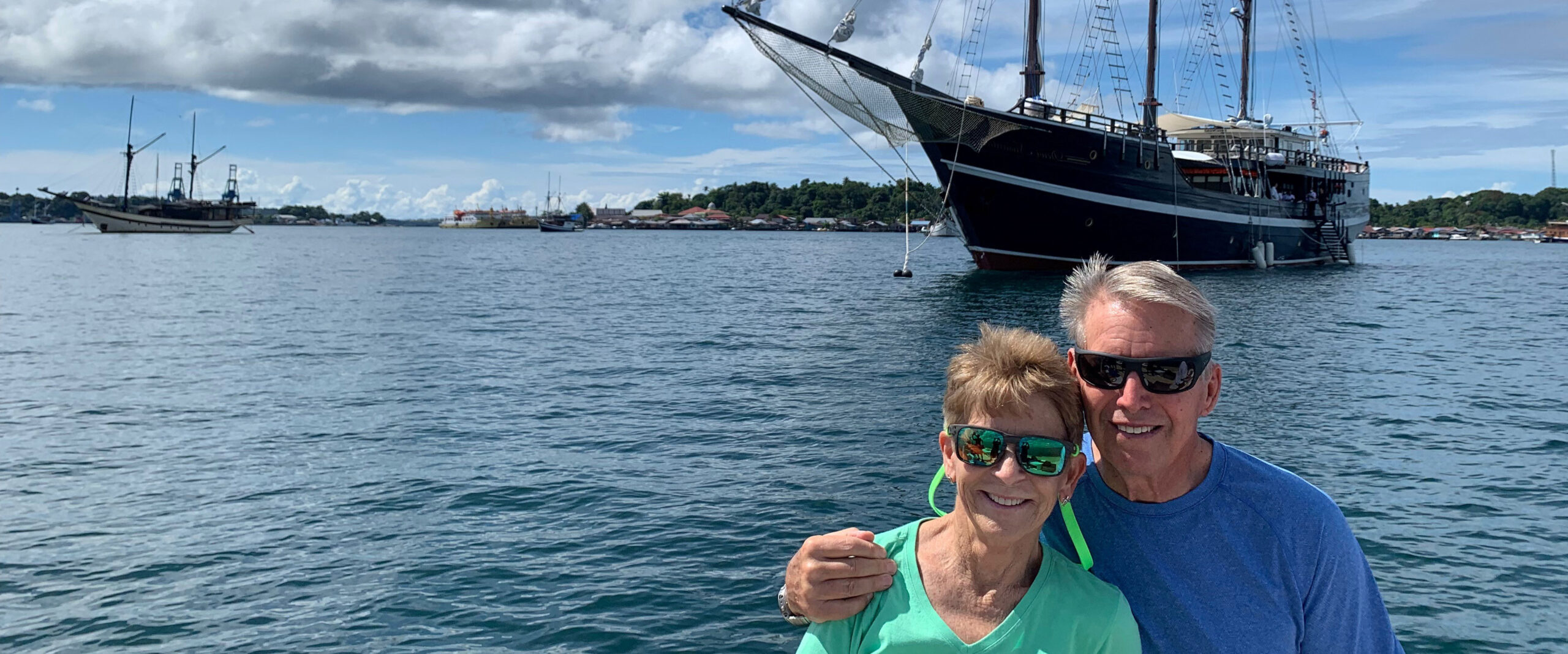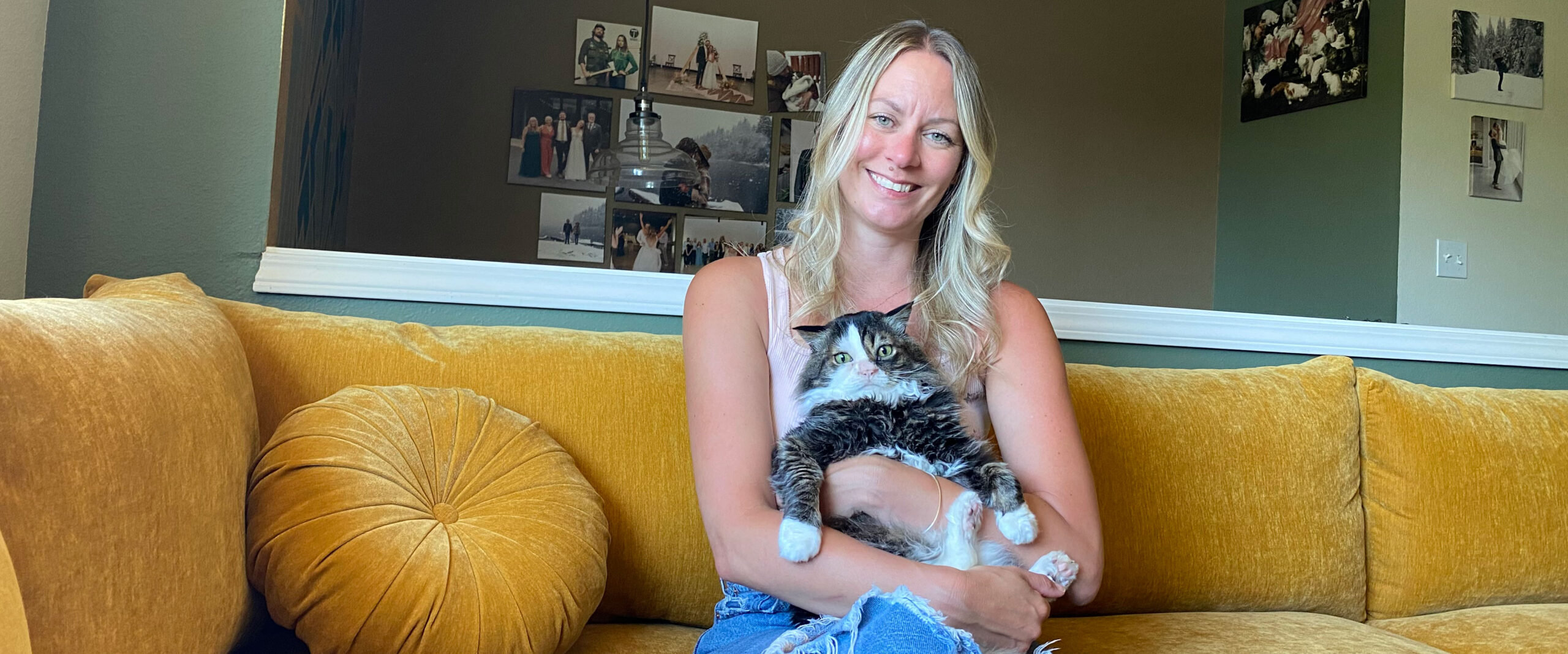By Darby Kendall
After spending over a year in intensive care units across two states, Lyra Meade finally made it home. Born at just 27 weeks and weighing under a pound, her journey has been anything but ordinary — requiring specialized care, a dedicated medical team, and the unwavering support of her parents, Alexis and Mike. Because Mike and Alexis are both from the Portland area and Lyra needs 24/7 monitoring with her tracheostomy tube, they moved back home to be closer to family and get their daughter care at OHSU Doernbecher Children’s Hospital. In this conversation, the Meades sat down with Lyra’s pulmonologist, Dr. Jonathan Krasinkiewicz, to reflect on her progress and the care that made it possible.
Transcript
Alexis: Even though there’s a lot of unknowns with babies, I think just the people we’ve met and how much knowledge they know about her situation and what they can control have been very impressive. And the things that the providers have been willing to try to improve her situation has been just remarkable.
Dr. K: You know, what I always tell our residents is: You look at the patients. Not the number on their ventilator, not their blood gas number, but how are we looking today sitting on mom’s lap?
Alexis and Mike Meade had their daughter, Lyra, in Colorado on March 6, 2023. She was born at 27 weeks and weighed just shy of one pound. After spending 381 days in the Neonatal Intensive Care Unit at Colorado Children’s Hospital, she was finally ready to come home with her new tracheostomy and gastrostomy tubes. Since Mike and Alexis are both from the Portland area and Lyra needs 24/7 monitoring with the tracheostomy, they moved back to be closer to family and get their daughter care at OHSU Doernbecher Children’s Hospital.
Doernbecher worked with Lyra’s team in Colorado, including her pulmonologist, Dr. Christopher Baker, to arrange medical transport for Lyra to the Doernbecher Pediatric Intensive Care Unit. She stayed there for four days before joining her parents at their new home on March 26, 2024. Now Lyra has a full care team at Doernbecher, including her pulmonologist, Dr. Jonathan Krasinkiewicz. Listen as Mike and Alexis sat down with Dr. K to discuss their shared experiences and Lyra’s care, as she plays in the background.
Dr. K: My mentor, who actually is the reason I went into pulmonary and the reason I love dealing with this patient population, she is really good friends with Dr. Baker. And so I knew him, and he’s like, “Hey, I’ve got a family who’s wanting to go to Oregon. I know you just took a job there.” And [he] basically told me the story. And I’m like, “Oh my gosh, yes, I would be so happy to take care of them.” And I just couldn’t wait to meet you guys.
Mike: So Alexis flew with her. She got to Doernbecher’s PICU and stayed there for about three days, and then finally came home, and then about a week later, we think we saw you for the first time. And it was great just having someone who had heard her story firsthand from one of our doctors back in Colorado. Everything that we’ve heard so far has been like the same approach, the same path, which is also nice to have that consistency. It’s not like a big surprise.
Alexis: Yeah, everything was really seamless coming to Oregon. We’d only heard great things about OHSU and Doernbecher. Yeah, it’s been the best choice for Lyra in continuity of care.
Dr. K: The biggest reason she needs it is because she was born so early and so small, and so the treatment for that is just growing. You grow new, healthy lung tissue. The lungs keep developing, believe it or not, till you’re two to five years old. Just with normal time and excellent growth, her lungs will get strong enough that she doesn’t need this extra support. And so outcomes are very good for this patient population, which is also really rewarding part of getting to work with them, and Lyra has made phenomenal progress in the short time that I’ve known them. We ask so much of these families, the care that they have to provide, so the parents I get to work with are just so motivated, such a positive outlook on life. They have excellent communication. They find joy in the little things, and it’s so gratifying. And then with the patient side of things, I meet them when they’re in the hospital, and they’re little, and they look very squishy, and then I get to see them grow into a beautiful toddler with beautiful pigtails. And you just get to see that and walk with them every step of the way and be like, “Wow, I remember how sick you were when I first saw you. And now look at you, clapping your hands and throwing a book around.”
Mike: I mean, honestly, the first couple of weeks that we were home, it was really hard, right? We were staying up. One of us would stay up till 2am the other person would wake up at 2am and we just kind of trade off back and forth and then work during the day and all that stuff. So it was really hard, but at the same time, like she started making progress developmentally. So quickly, she started putting more things in her mouth, which she couldn’t do with the face mask. She started sitting up on her own and wanting to, like, move and crawl and make noise. And so just seeing that made us realize, like, “Okay, this was 100% the right decision.” And then seeing our family get to interact with her without coming to a hospital and checking in, taking an elevator and all those things also just really solidified that.
Alexis: It was all worth it though. It’s true, like, it’s so true. We were able to go home after a year. We were able to live a somewhat normal life, as much as you can for having a kid on life support, you know, pretty much. We take her out on walks, we meet up with friends for dinner, and we take her over to my parents’ house. She does get to have a childhood, and that has been really great. I’d say that Doernbecher was a big piece of it. If Doernbecher wasn’t here, we probably wouldn’t have thought as much about coming to Oregon, just because it is so important that she has top care for what she needs, and she has a lot of people she sees. Pulmonology is definitely the number one, but she also sees a cardiologist for her heart stuff, and then she’s got all the therapies that come with being born so early and spending most of your life in the hospital. So it was really important that we had a good care team set up. It was just nice that we had family and a great hospital choice in the same area.
Dr. K: Even in the short time I’ve known her, she has made tremendous strides, and that’s just very gratifying to see that progress and feel like I can help and walk with these families on this journey that’s not easy. They make it look easy, you know, but it isn’t, and so it’s just really rewarding. I love getting to be part of this.




